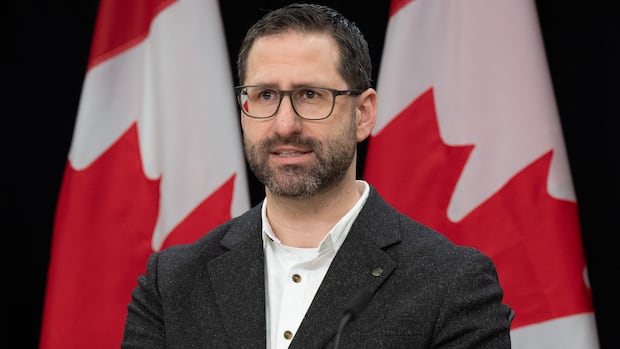A report from Canada’s victims of crime advocate says survivors of sexual violence are being systemically betrayed by the criminal justice system as allegations are often disbelieved and cases are regularly delayed or dropped.These are just some of the findings from a nearly 300-page report entitled Rethinking Justice for Survivors of Sexual Violence: A Systemic Investigation. The report by Benjamin Roebuck, the federal ombudsperson for victims of crime, is the result of more than 3,000 interviews, surveys and case reviews conducted since March 2024. It examines how victims of sexual violence are treated throughout the justice system; whether their allegations are believed; what resources they have access to; and how their membership in a vulnerable group or geographic location impacts their experience. “The harm is so well recognized that police officers and Crown attorneys regularly caution survivors against reporting or pursuing charges. The administration of justice is in open disrepute,” Roebuck said in his foreword to the report.The report says there are systemic issues across the justice system that need to be addressed in order to encourage victims to come forward and to prevent them from being re-traumatized by that system when they do. “One survivor we interviewed talked about choosing to report knowing that it would be a difficult process, that it could cause harm, but doing it to protect the public. It’s a sacred trust that people are putting in the system,” Roebuck said Wednesday in Ottawa.“I do honour the fact that there are many good-hearted, effective people working across the system, but there are clear points that need to change so that survivors are better protected.”Among the 1,000 survivors of sexual violence who participated in a survey for Roebuck’s report, 93 per cent said they feared police wouldn’t believe them if they came forward. Only 51 per cent of the 1,000 survivors reported the crimes against them to police; 102 of those cases went to trial, resulting in just 70 convictions. WATCH | Justice system must better protect sexual violence survivors, says federal ombudsperson:Justice system must better protect sexual violence survivors, says federal ombudspersonThe Office of the Federal Ombudsperson for Victims of Crime released a 300-page report on Wednesday, examining the experiences of victims of sexual violence within the justice system. The report says survivors’ allegations are often disbelieved while the justice system routinely delays or drops cases.To improve those outcomes, the report makes 43 recommendations grouped into 10 categories. Chief among those recommendations is the need to fully investigate allegations of sexual violence reported to police. That won’t happen, the report says, until “the system confronts the structural conditions silencing survivors.””Reporting sexual violence is often framed as an individual choice, but survivors consistently indicate that their silence is in response to systemic barriers, institutional failures and inequality rather than personal unwillingness,” the report says. Implementing MMIWG calls for justiceTo encourage victims to speak out, the report recommends providing specific training to police and courts on the unique needs of sexual assault survivors based on sex, gender, age, immigration status, income, race, culture, religion and mental health. The report also calls on law enforcement to abandon the use of “KGB statements”: sworn and recorded video statements by victims that are taken by police to detail allegations that can be used in court if an alleged victim changes their testimony. “KGB statements include multiple warnings about criminal prosecution for lying, including references to prison terms longer than the maximum length for most sexual offences,” the report says. The use of these recordings, the report says, treats victims with suspicion from the outset, leading them to conclude they aren’t believed from the time they first report their alleged assault.The report also calls on the federal government to improve justice for Indigenous people by ensuring tools such as sexual assault evidence kits are as accessible in northern and remote regions as they are in more populated parts of the country.It also wants the federal government to implement the calls for justice from the National Inquiry into Missing and Murdered Indigenous Women and Girls.Addressing delays and staysA 2016 Supreme Court decision in the case of R. v. Jordan established that criminal cases that go beyond 18 months for provincial courts and 30 months for superior courts can be stayed for unreasonable delay.The federal ombudsperson for victims of crime report says that since that decision, more than 268 sexual assault cases across the country have been stayed because of trial delays.Roebuck’s report says that in 2022-23 alone, sexual assaults were the most likely of any criminal cases to be stayed or withdrawn, with almost a third of them surpassing the time limit set by the top court.The report calls on the federal government to amend the Criminal Code to set out a number of criteria that a court must consider before staying charges for cases that drag on beyond prescribed time limits.Roebuck’s report also wants the federal government to increase the threshold that allows therapeutic records to be used by defence attorneys in court. A fair cross-examinationUnder the law, a defence attorney can apply for access to an alleged victim’s private documents such as their personal emails, journals and even medical and psychiatric records. An official from Roebuck’s office told CBC News during a background briefing that in one case, an alleged victim was cross-examined on the content of a dream she had relayed to her psychiatrist. The alleged victim was made to answer how the contents of her dream differed from her testimony before court, the official said. “The risk of those records being disclosed in court means that many survivors felt like they had to choose between justice or getting mental health help,” the report said. “The threat of an aggressor gaining access to a survivor’s therapeutic records is a risk to the health and safety of survivors.”WATCH | Ombudsperson calls for higher threshold to access sexual violence survivors’ therapy records :Ombudsperson calls for higher threshold to access sexual violence survivors’ therapy recordsBenjamin Roebuck, the federal ombudsperson for victims of crime, suggests the therapy records of plaintiffs in sexual violence cases should only be available to defence attorneys when ‘necessary to argue the case.’Roebuck said that while the Supreme Court says therapeutic records can be useful in some cases, the conditions under which they are entered into evidence are too broad. “Often those records are adding little value and they need better protection,” Roebuck said.The report also wants victims of sexual assault to be given a “fair chance at cross-examinations” where they are allowed to use “testimonial aids,” like having someone to support them present in court or allowing them to testify behind a screen.Testimonial aids are available across the country, but the report says accessibility differs by region. The report calls on these aids to be offered to alleged victims automatically and to require judges to give written reasons if they are denied.The report also calls for a number of procedural changes, including expanding the use of restorative justice — programs that focus more on the rehabilitation of the offender of a crime, and reconciliation with the victims, and less on punishment.Roebuck’s report recommends not giving the Crown or defence access to victim impact statements until there is a finding of guilt so they cannot be used for cross-examination during trial. The report also calls on the federal government to better support sexual assault survivors in the community. It urges provinces and municipalities to improve data collection on sexual violence cases as they move through the court system to determine if issues identified in Roebuck’s report are being addressed, and to what extent.”Assessing the effectiveness and responsiveness of Canada’s criminal justice system to crimes of sexual violence requires detailed, ongoing open access to outcomes-based data at all levels of the criminal justice system,” the report says. Support is available for anyone who has been sexually assaulted. You can access crisis lines and local support services through this Government of Canada website or the Ending Violence Association of Canada database. If you’re in immediate danger or fear for your safety or that of others around you, please call 911.
Thursday, 5 Mar 2026
Canada – The Illusion
Search
Have an existing account?
Sign In
© 2022 Foxiz News Network. Ruby Design Company. All Rights Reserved.
You May also Like
- More News:
- history
- Standing Bear Network
- John Gonzalez
- ᐊᔭᐦᑊ ayahp — It happened
- Creation
- Beneath the Water
- Olympic gold medal
- Jim Thorpe
- type O blood
- the bringer of life
- Raven
- Wás’agi
- NoiseCat
- 'Sugarcane'
- The rivers still sing
- ᑲᓂᐸᐏᐟ ᒪᐢᑿ
- ᐅᑳᐤ okâw — We remember
- ᐊᓂᓈᐯᐃᐧᐣ aninâpêwin — Truth
- This is what it means to be human.
- Nokoma











